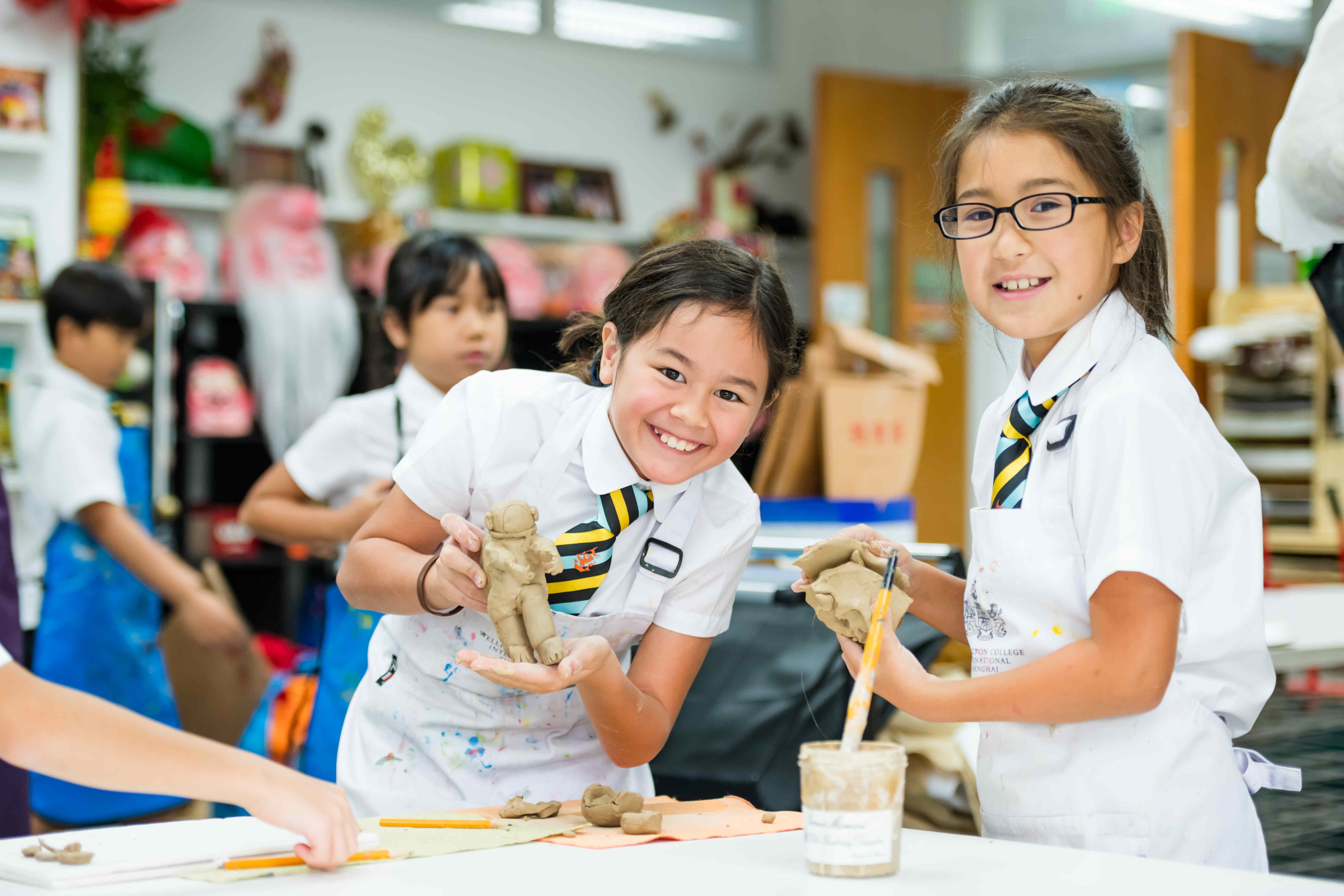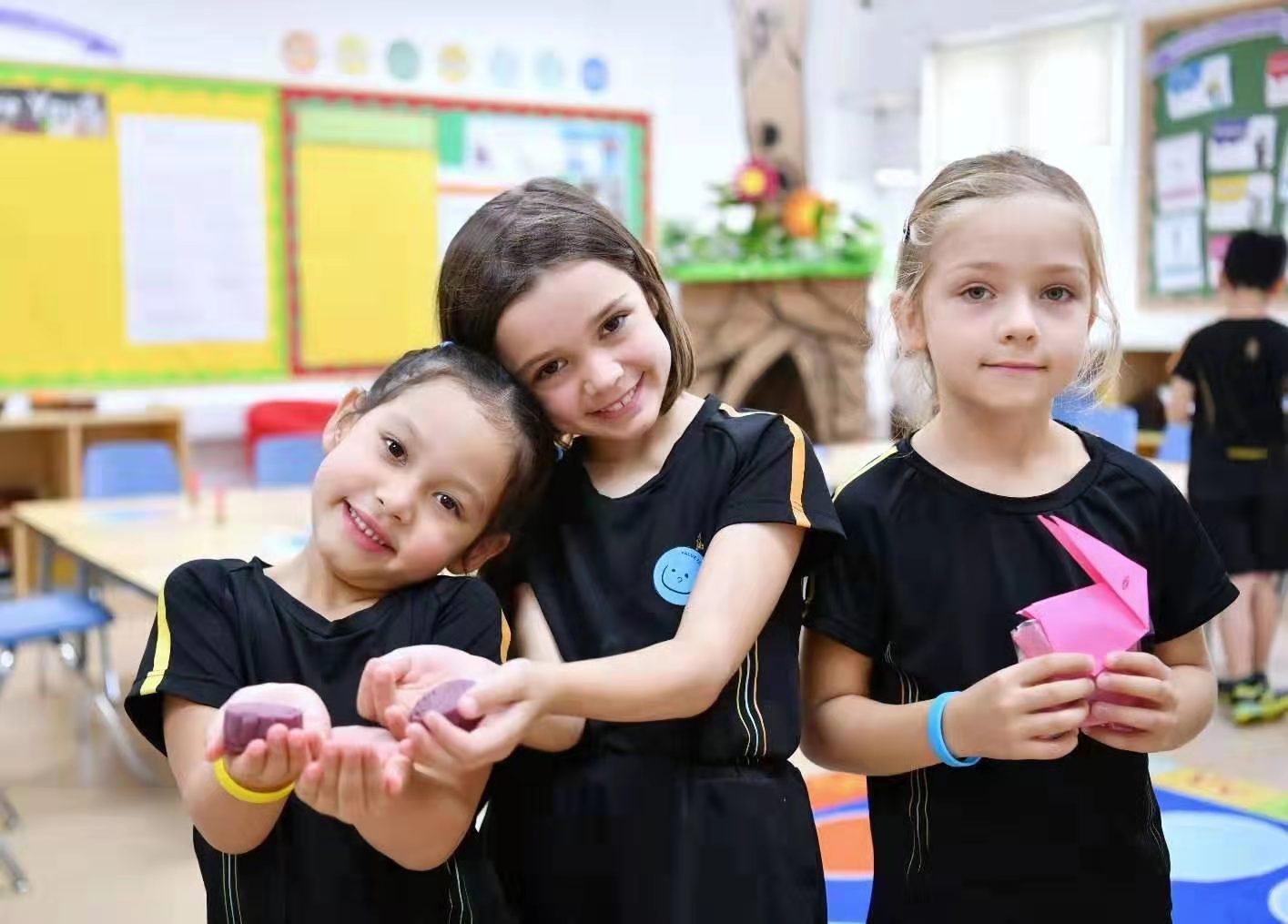Insights | In the pursuit of happiness
15 Jan 2020

Emma Button
Consultant
Wellington College Shanghai and Wellington College Education (China)
 Simple as it may be, achieving a level of happiness is something that does often present a challenge to us in this modern age. Never in history has the wellbeing of humankind been so discussed. Sometimes when we talk about happiness it sounds a lot like the main components of mental health. It is also easy to feel helpless when it comes to our children’s mental health and wellbeing when we look around and feel the weight of scary statistics and trends bearing down on us.
However, parents and teachers have a lot of power when it comes to their child’s mental health and resulting happiness. Indeed, many parents will say their one wish for their child’s future would for them to be happy. But how do we foster and support this wish in children?
There are a large number of books, blogs and online resources that give hints and tips about promoting happiness in children, but I wanted to share a few that I consider key from my experience.
Simple as it may be, achieving a level of happiness is something that does often present a challenge to us in this modern age. Never in history has the wellbeing of humankind been so discussed. Sometimes when we talk about happiness it sounds a lot like the main components of mental health. It is also easy to feel helpless when it comes to our children’s mental health and wellbeing when we look around and feel the weight of scary statistics and trends bearing down on us.
However, parents and teachers have a lot of power when it comes to their child’s mental health and resulting happiness. Indeed, many parents will say their one wish for their child’s future would for them to be happy. But how do we foster and support this wish in children?
There are a large number of books, blogs and online resources that give hints and tips about promoting happiness in children, but I wanted to share a few that I consider key from my experience.
 Children thrive when they know where they are, both physically and emotionally. Many of you will know I am a strong advocate of clear routines and boundaries for children. However, in recent years I have seen an alarming increase in children with overly regimented lives, where every minute is planned and accounted for. Much of this appears like an extension of school with entire weekends taken up with clubs and tutoring. Children are then constrained in a number of ways, unable to express their interests organically in play and unable to develop those key skills of being bored and learning to seek out their own entertainment with support or guidance.
Children thrive when they know where they are, both physically and emotionally. Many of you will know I am a strong advocate of clear routines and boundaries for children. However, in recent years I have seen an alarming increase in children with overly regimented lives, where every minute is planned and accounted for. Much of this appears like an extension of school with entire weekends taken up with clubs and tutoring. Children are then constrained in a number of ways, unable to express their interests organically in play and unable to develop those key skills of being bored and learning to seek out their own entertainment with support or guidance.
 Therefore, children must have time to play. At Wellington I have taken great delight in recent weeks observing the children in the new year 1 and 2 play area. At lunchtimes, it is full of engaged and excited children playing. Their imagination has been sparked and there is not one child who isn’t embodying happiness. If proof were ever needed of this then come and observe the children enjoying independent play on the play area equipment after school.
Music, dance and physical exertion are all excellent stimulants for the brain to produce endorphins, the so-called ‘happy chemicals’. Again, this doesn’t have to be overly regimented and planned for, it can be done in a much more relaxed and organic way.
Therefore, children must have time to play. At Wellington I have taken great delight in recent weeks observing the children in the new year 1 and 2 play area. At lunchtimes, it is full of engaged and excited children playing. Their imagination has been sparked and there is not one child who isn’t embodying happiness. If proof were ever needed of this then come and observe the children enjoying independent play on the play area equipment after school.
Music, dance and physical exertion are all excellent stimulants for the brain to produce endorphins, the so-called ‘happy chemicals’. Again, this doesn’t have to be overly regimented and planned for, it can be done in a much more relaxed and organic way.
 This is very much linked to my first point, but it is worth a closer look. Children need to know that mistakes are ok, and that we all fall and fail in life. Such challenges can provide us with a chance to build our resilience, another key life skill. Equally, children must have space in their lives to express their emotions, be they happy, sad or angry. They must also see that adults have these emotions too, and how we deal with them is also important. We are the role models for our children, in every aspect of our lives. What they see and hear in relation to the adults in their lives, children will project onto their own interactions and emotions. Even in this modern age, we still have children who face physical harm at home. As you know, at Wellington this goes against every value we seek to uphold. In addition, there is no way a child can feel happy in a home where there is fear or worry about punishment.
This is very much linked to my first point, but it is worth a closer look. Children need to know that mistakes are ok, and that we all fall and fail in life. Such challenges can provide us with a chance to build our resilience, another key life skill. Equally, children must have space in their lives to express their emotions, be they happy, sad or angry. They must also see that adults have these emotions too, and how we deal with them is also important. We are the role models for our children, in every aspect of our lives. What they see and hear in relation to the adults in their lives, children will project onto their own interactions and emotions. Even in this modern age, we still have children who face physical harm at home. As you know, at Wellington this goes against every value we seek to uphold. In addition, there is no way a child can feel happy in a home where there is fear or worry about punishment.
 I have had so many conversations with children about the joy they feel when they are with their parents and loved ones, talking about weekends and holidays spent together, they are alive with happiness. We all lead increasingly busy lives, over which work often looms large. But children need their fair share of time too. A hug from a parent means the world, but an afternoon together, engaged in the interests of the child means even more. Children particularly love to hear what you love and admire about them, especially when it is a story about themselves. The day they were born, their first day at school or another important event are all lovely topics to talk about with your child, and they will be a captive audience.
So, in conclusion, I believe achieving an adult state of happiness is the direct result of a childhood spent exploring the interests and experiences that bring you happiness. We can all agree that our children deserve a future that is successful and secure, but it must also be a happy future for them. I hope that all our Wellingtonians pursue happiness with the same determination and ambition they will apply to their education and other life goals. I believe, happiness is the most important goal of all.
I have had so many conversations with children about the joy they feel when they are with their parents and loved ones, talking about weekends and holidays spent together, they are alive with happiness. We all lead increasingly busy lives, over which work often looms large. But children need their fair share of time too. A hug from a parent means the world, but an afternoon together, engaged in the interests of the child means even more. Children particularly love to hear what you love and admire about them, especially when it is a story about themselves. The day they were born, their first day at school or another important event are all lovely topics to talk about with your child, and they will be a captive audience.
So, in conclusion, I believe achieving an adult state of happiness is the direct result of a childhood spent exploring the interests and experiences that bring you happiness. We can all agree that our children deserve a future that is successful and secure, but it must also be a happy future for them. I hope that all our Wellingtonians pursue happiness with the same determination and ambition they will apply to their education and other life goals. I believe, happiness is the most important goal of all.
Related Articles

Pupil Leadership Team Q&A with UK Deputy Consul General13 Mar 2025
This February, we had the privilege of welcoming Ms Barbara Amono-Oceng, the British Deputy Consul-General of Shanghai, to Wellington College International Shanghai. It was an opportunity to hear her
Read More

Get Your Tickets! Summer Festival 2025: Superheroes Assemble!22 Apr 2025
Get ready for an action-packed day of family fun on 10 May at our annual Summer Festival, a proud Wellington tradition hosted by Friends of Wellington (FOW) bringing our whole school community togethe
Read More

AquaLions SSL Success: Where Fire Meets Water31 Oct 2025
On Saturday 18 October, our Wellington AquaLions made big waves at the 2025 Shanghai Swim League Round 1 with four of our swimmers smashing six SSL records. Coach Miguel previously served as a coach
Read More










